2023s
- Poetry is fun to write — there are so many forms that you can play with, and there are great books and resources available to help make the process even better.
- Quantity begets quality — it will be a struggle to choose 20 poems because there aren’t that many good ones, but I have written some of my best stuff this month because I was doing this challenge.
- Poetry is fun to read — especially if you find someone like John Cooper Clarke or the UK’s current Laureate, Simon Armitage.
- It’s incredibly satisfying to do a small creative task every single day. There were a couple of days when I had to catch up because of work, but I am here on the 30 November having written 30 poems. No other time in my life has that been the case.
A rare snowfall here in the west of Scotland.
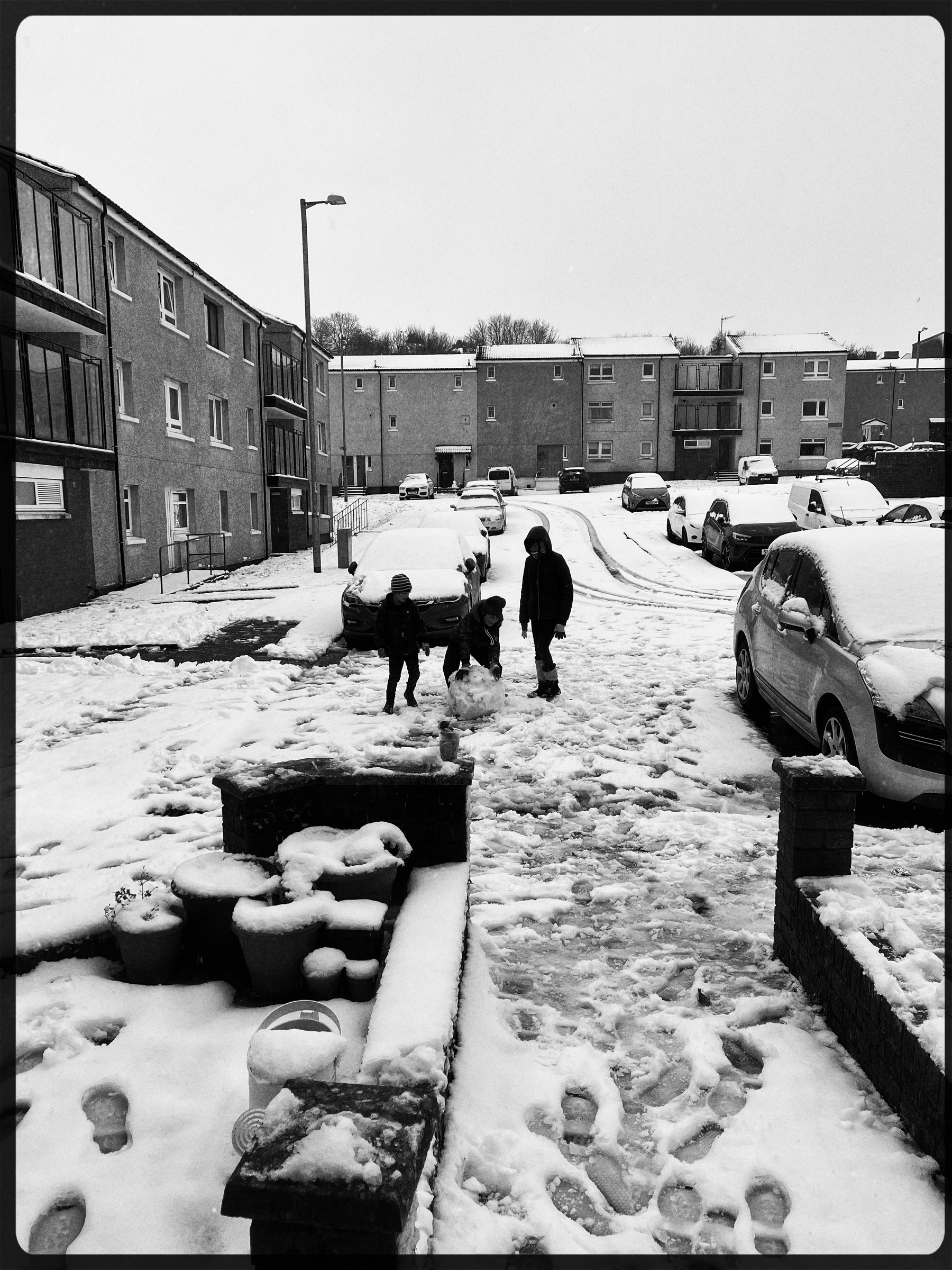
Finished reading: The Whale at the End of the World by JOHN. IRONMONGER 📚
Finished reading: Simply Trinity by Matthew Barrett 📚
A while back, I bought a couple of these accordion fold refills for my Traveler’s Notebook. I wasn’t sure what to do with them, thinking maybe I would make a big piece of artwork in them, but never did. Instead, I’m using one as a sort of commonplace book.
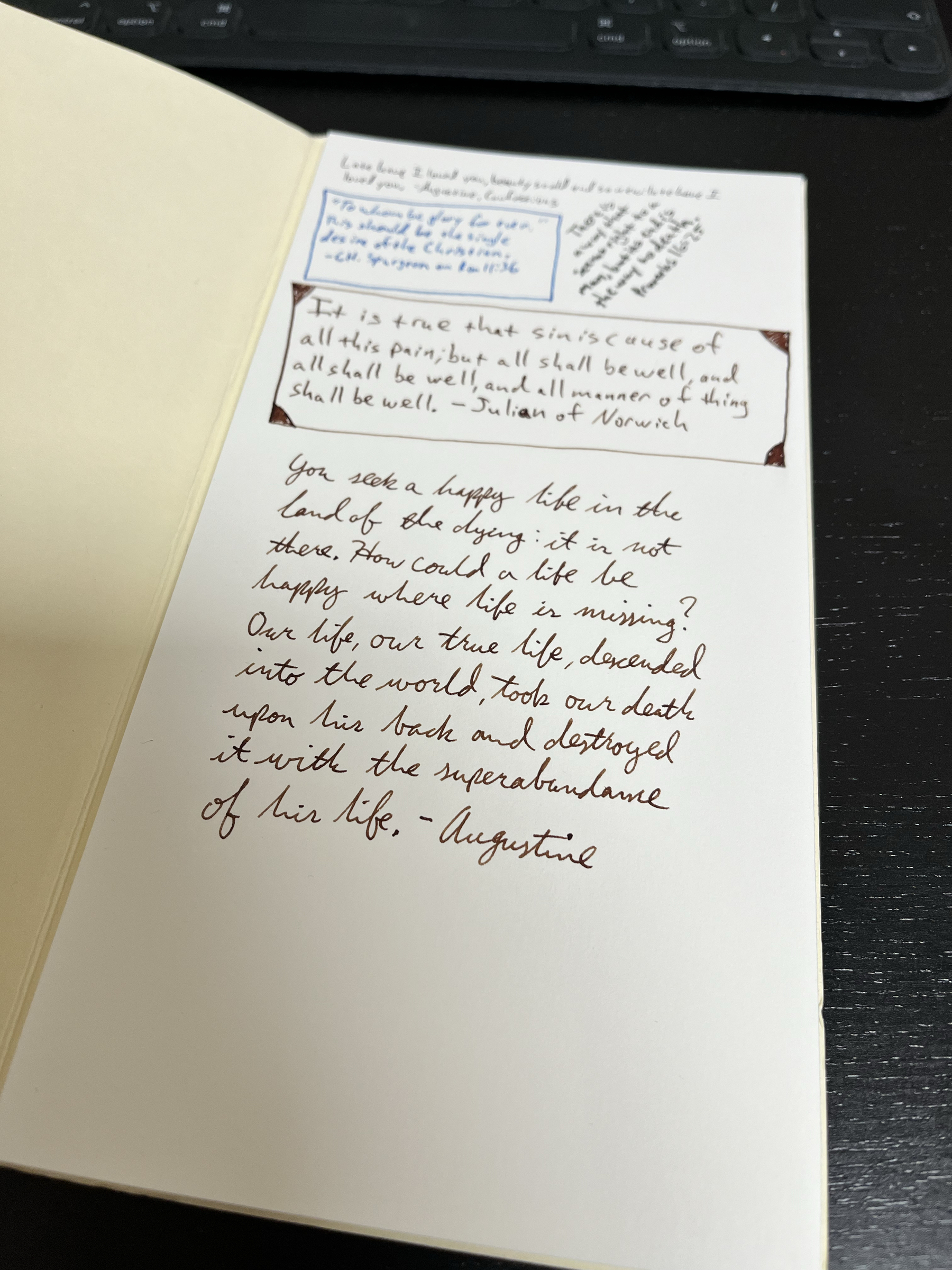
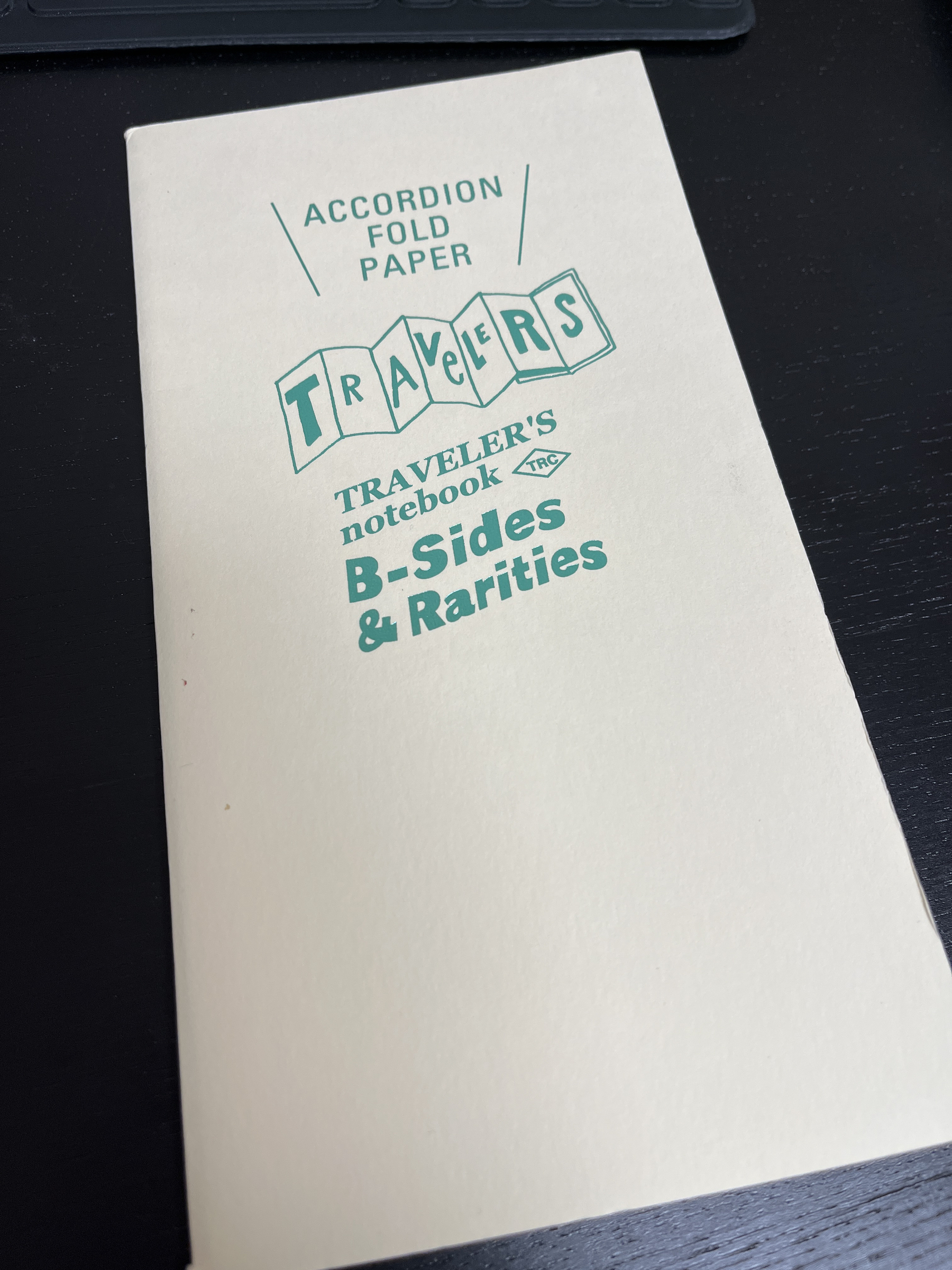
Just dropped off a bunch of flyers for our Blue Christmas service at the local library. Even for me, as a pastor and someone who stands up in public to tell people about Jesus, it still feels awkward to stuff like that.
thoughts on writing 30 poems
As I write this, I have just finished the main writing portion of the poetry challenge I was doing this month. There is still the process of choosing 20 of the poems to be worked on further to have a chapbook to submit, but my initial thoughts are these:
This was a fun read.
Finished reading: The Falcon of Sparta by Conn Iggulden 📚
There is nothing better than paper for trying to get a sense of the big picture. Unfortunately, this paper isn’t big enough to also include figuring out when I will study for my training course.
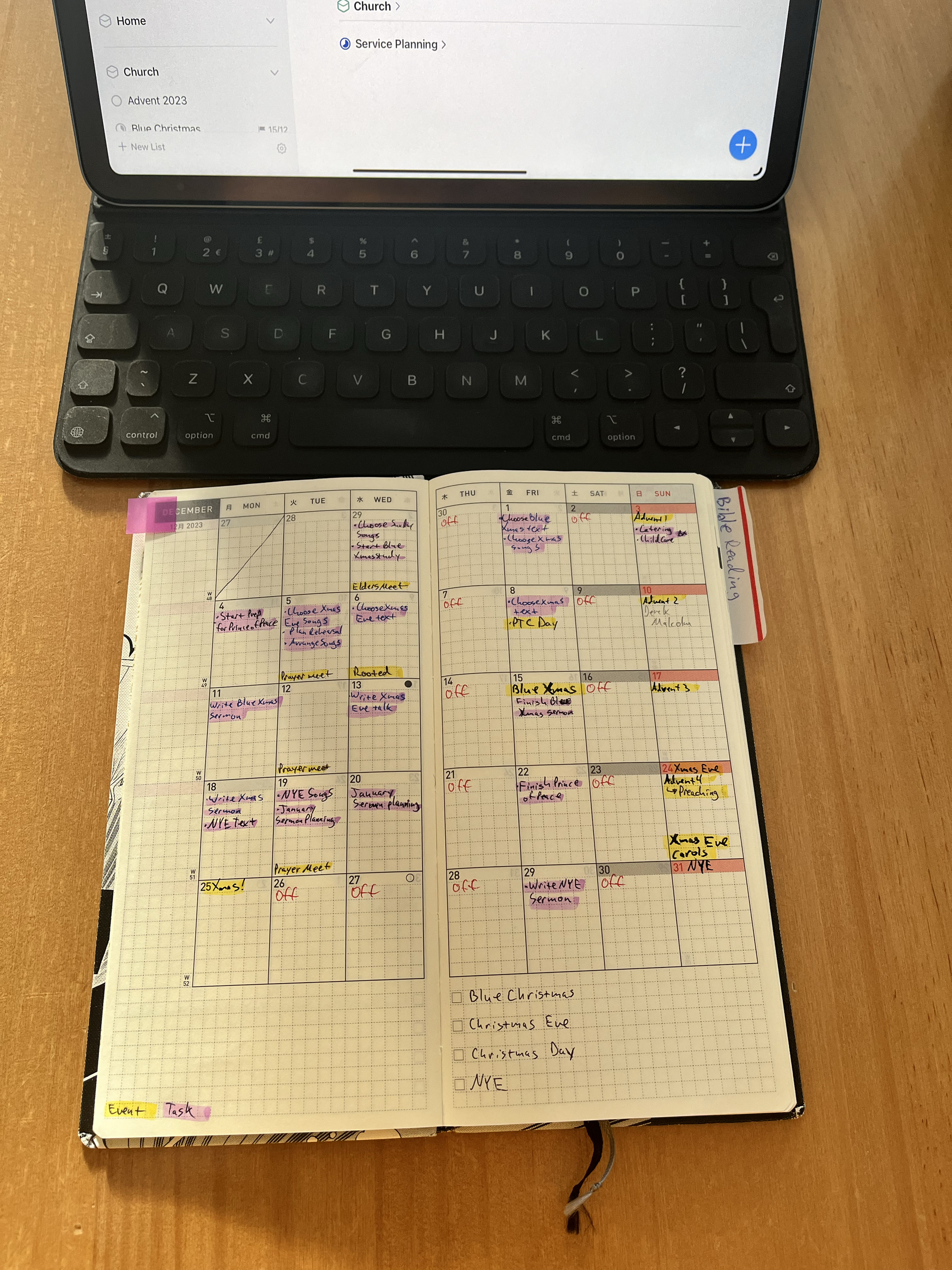
teaching helps with learning?
One of the things that I have found as I spend more and more time studying Scripture is that there just seems to be more of it to hand in my mind. This has increased a lot as I have been working on sermons and Bible studies. I am also finding that much of what I am learning for my training course is becoming what I am teaching to our youth group.
My understanding of this was always that becoming more familiar was just a natural consequence of time spent working on studying Scripture. Apparently it’s possible that an even bigger help for this has actually been the act of teaching others. For many, this will probably be obvious, but it wasn’t obvious for me. Jared Henderson makes the case that reading with the intention of teaching and taking notes with that in mind helps to increase knowledge retention.
Looking at this from a discipleship perspective, it seems like the best way to help people grow in the grace and knowledge of our Lord and Saviour (2 Pet 3:18) is to help them make disciples themselves. This seems to be further confirmed by research shown in books like The Trellis and the Vine.
I know that my own devotional life has been greatly enriched by the training that I had in learning how to teach the Bible. God’s word seems to yield more and more applications as I spend more time in it. And that very same gift being handed down is what we are working at, just as it was for Timothy under the care of his mother and grandmother (1 Tim 1:5).
Behind these stone walls is a place of comfort
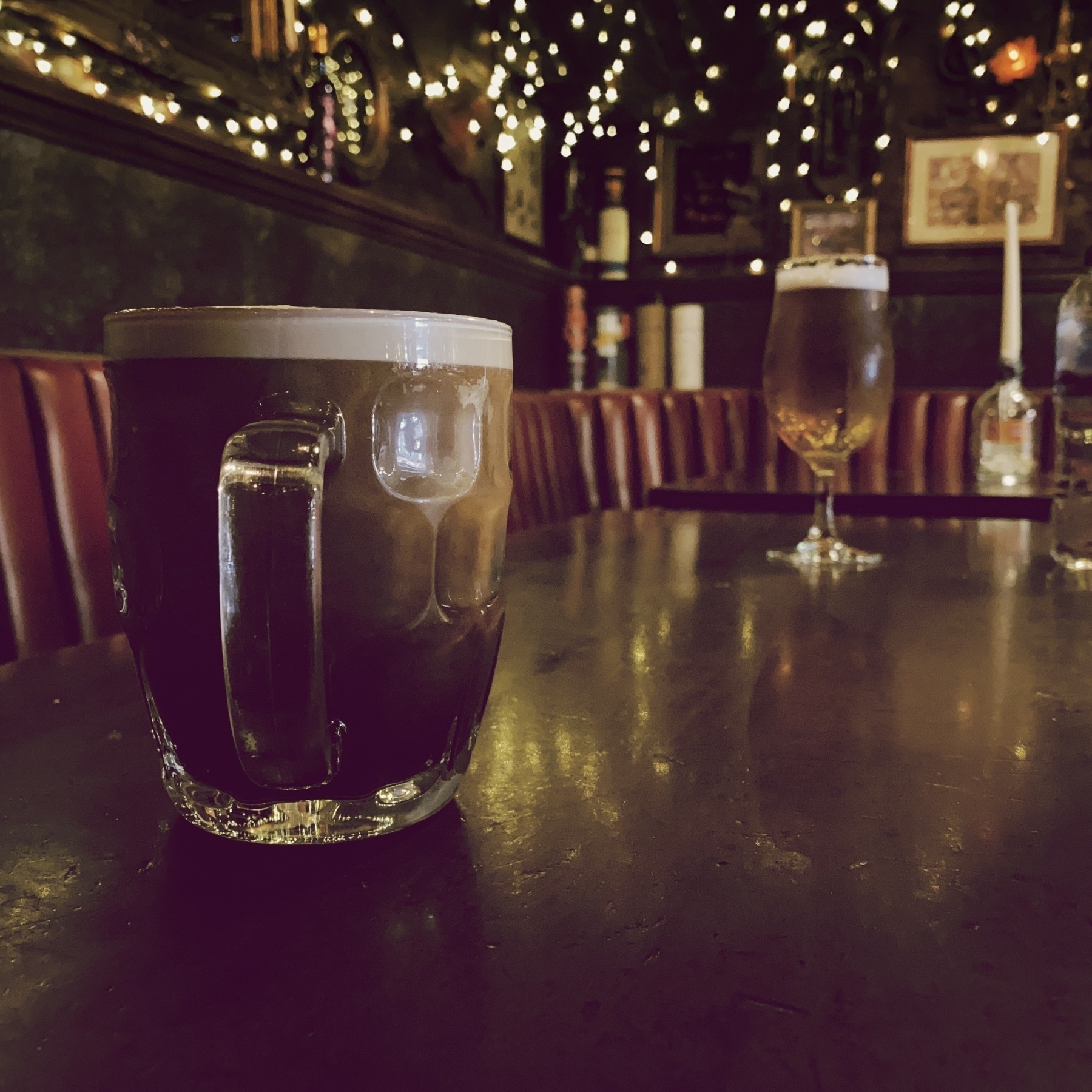
Where there is a fire burning and wooden tables
A dog sleeps on a rug
Where there is walnut and oak and brass
A chair by a table
Where there is glass and amber and darkest night
A meal with friends
Where the night is too short and the pour is long
A world away
One big lesson I’ve learned while studying the doctrine of God, and the Trinity in particular, this term is that I really need to make some time to read Aquinas and Augustine.
Something I’ve really enjoyed this month is writing a poem each day while following this challenge. Have any of my poems been any good? Not particularly, but it’s been nice to have a small creative project each day. 📝
nothing is straightforward
In the most recent issue of Tabletalk, there was an article on the pluses and minuses of technologies like blockchain and a decentralised web. There are many on either side.
As I read through it, I was first reminded again of the fact that the church is usually very late in understanding what is going on in the world. However, in this instance, as these are things that most laypeople will have no real understanding of, I think they got the timing of this right. It isn’t a hot take, but it isn’t ice-cold either.
The second thing I was struck by, and really appreciated, was the thought that went into writing the article. So often, what we read online is entirely one-sided and tries to push things in only one direction. This is understandable because our psyche likes to be told what it likes to hear. One-sided arguments that state the opposing opinion in the worst possible way sells. It creates buzz around a thing. Nuance, however, requires a slow response. The thought going into producing something so well-articulated and balanced shows that there is still a certain… something to pieces of writing that are going to print after going through phases of editing. At least, this is the case with trying to present something well.
In fact, nuance requires not just a slow response but a deliberate delay of response. It requires us to be quick to listen and actually consider things from multiple angles. And this is an action we do too little of.
I won’t rehash the arguments made in the article, it’s well worth a read. But my own personal takeaway is the reminder that nothing is straightforward. We live East of Eden and we await the great culmination of all things. We’re not in the upside-down, but in a jumbled up world. In so much of life, we see the potential for both good and bad. Consider how science and technology can be used to preserve life, through the creation of new medicines, or end life, through the creation of more powerful, more efficient weapons. Consider how the arts are used both to speak truth to power or to mislead and exploit. We can’t necessarily write something off completely. We have to take a slower, more considered approach to things.
Today was another big writing day (3800 words). Then it was trinitarian reading assignments. My brain needed a break and doing a sketch was a good one.
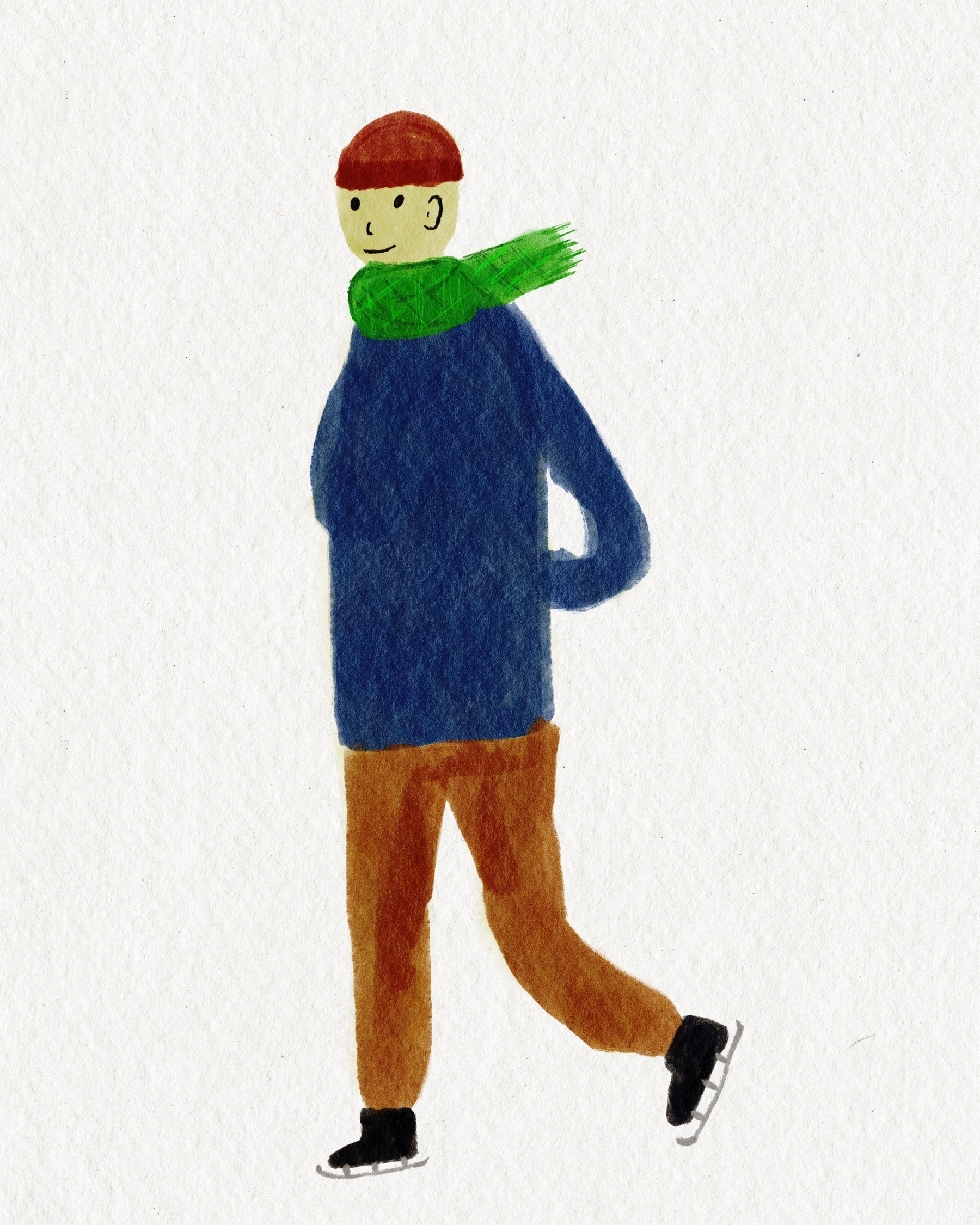
Finished reading: Timothy Keller by Collin Hansen 📚
I’ve had Procreate for a long time but don’t spend enough time using it. I followed this tutorial by Calvin at DrifterStudio and it was fun!
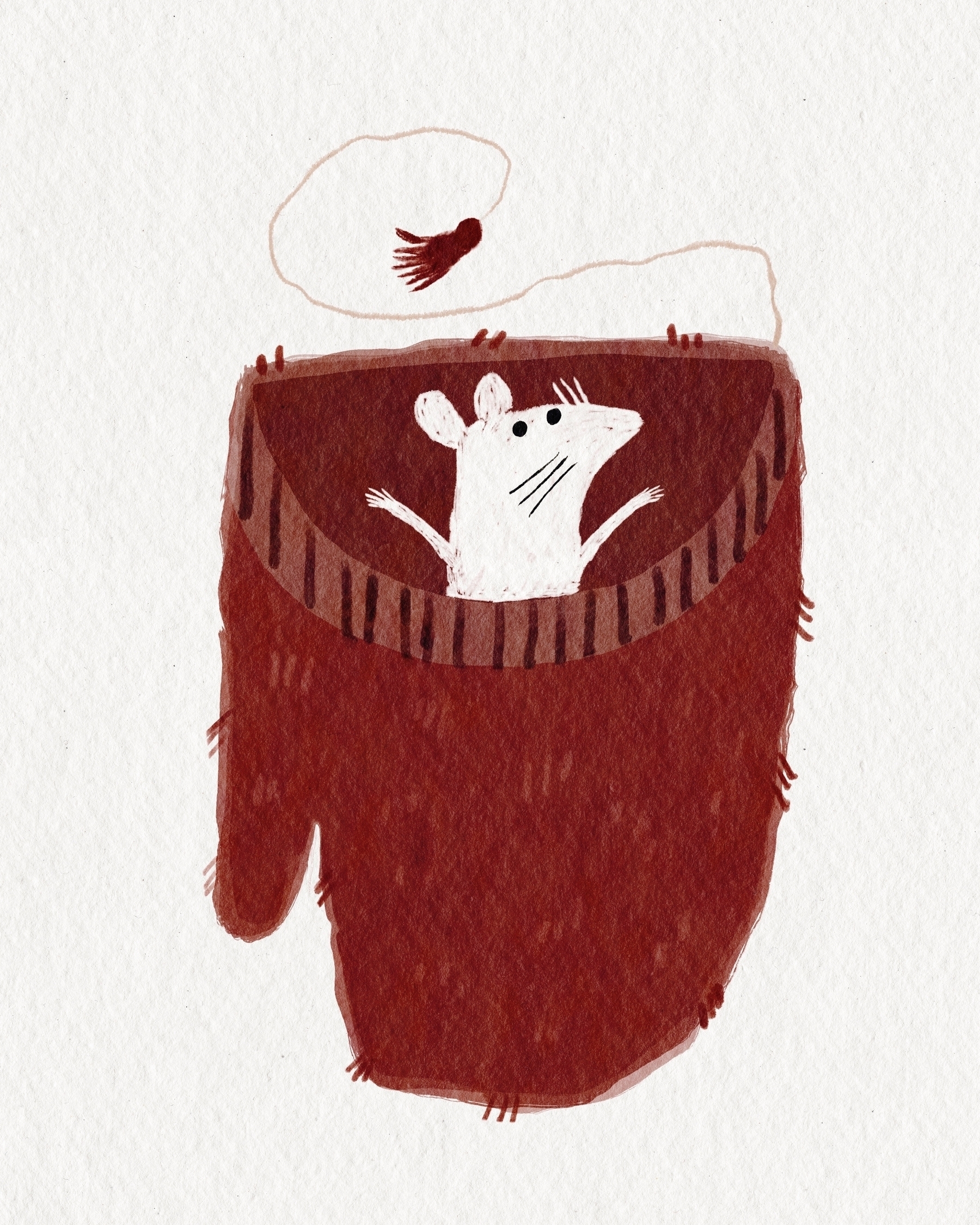
Fridays are long. They start with an early train so I can get some of my sermon writing done before a day in the classroom for my training course. Then another hour or so of writing before getting the train home. Enjoying making some socks and watching a film with my wife. 🧶
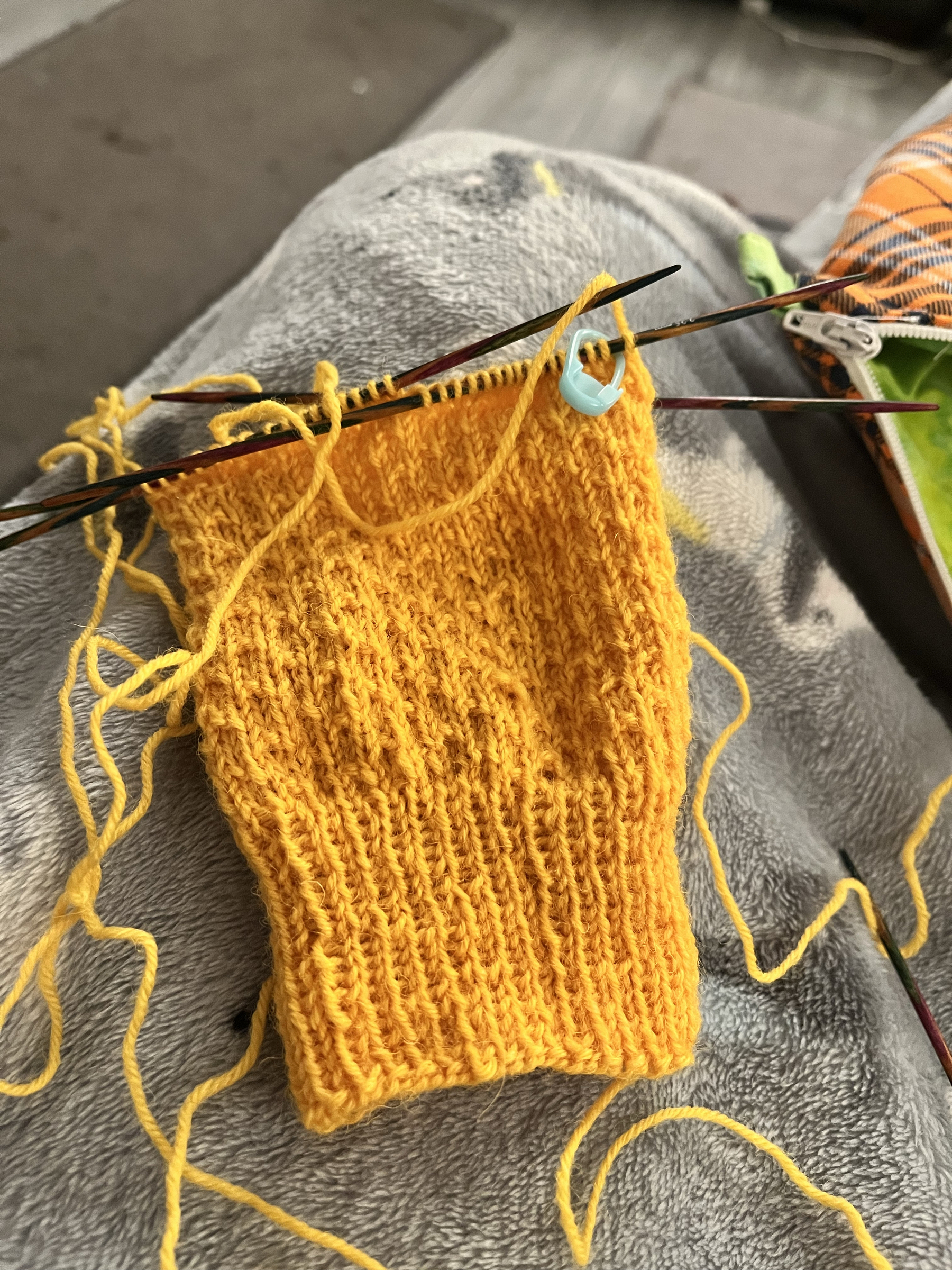
Started reading: Simply Trinity by Matthew Barrett 📚
Had a couple loaves of sourdough in the oven after church today. Really pleased with how they’ve turned out.🍞
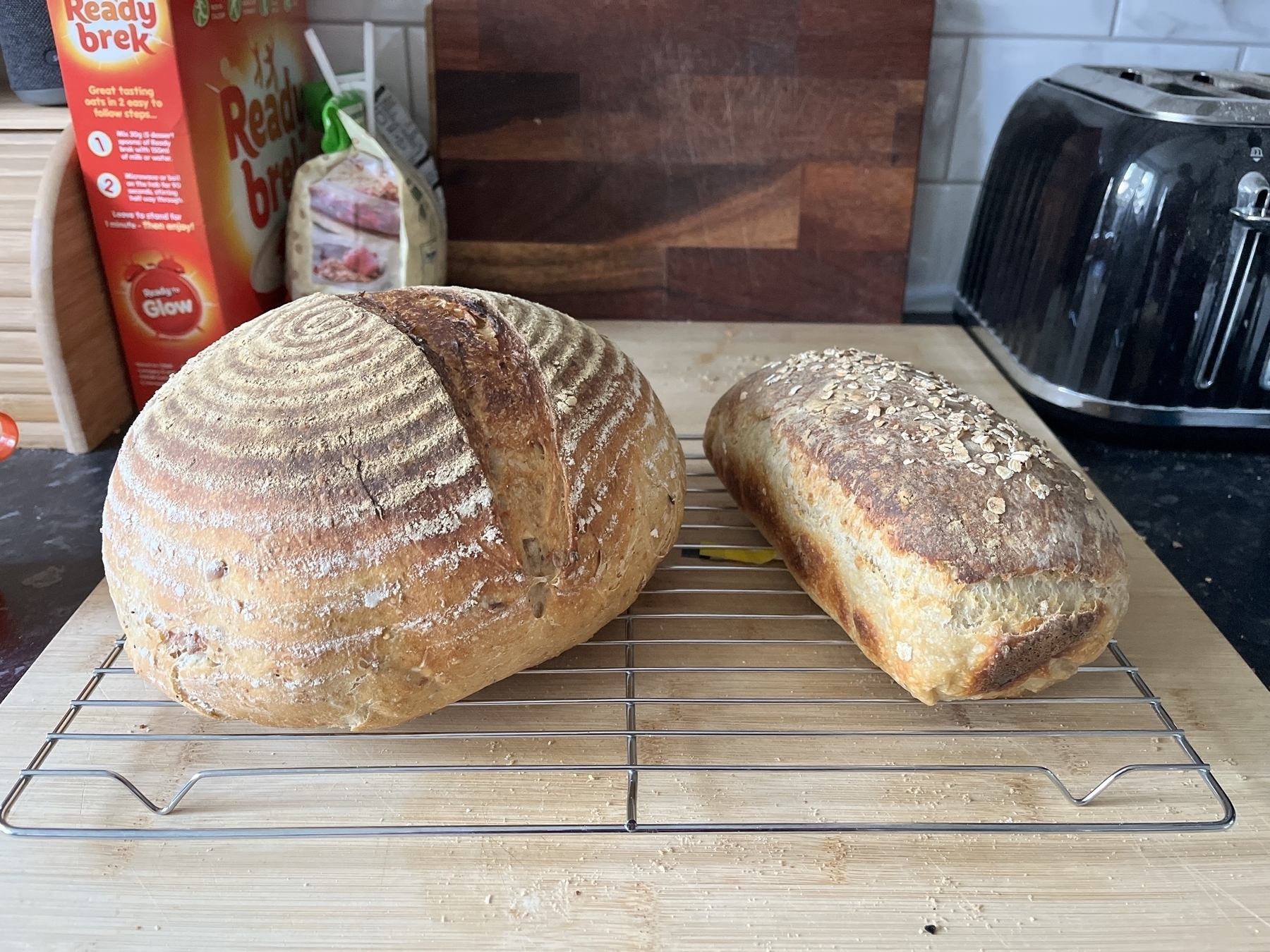
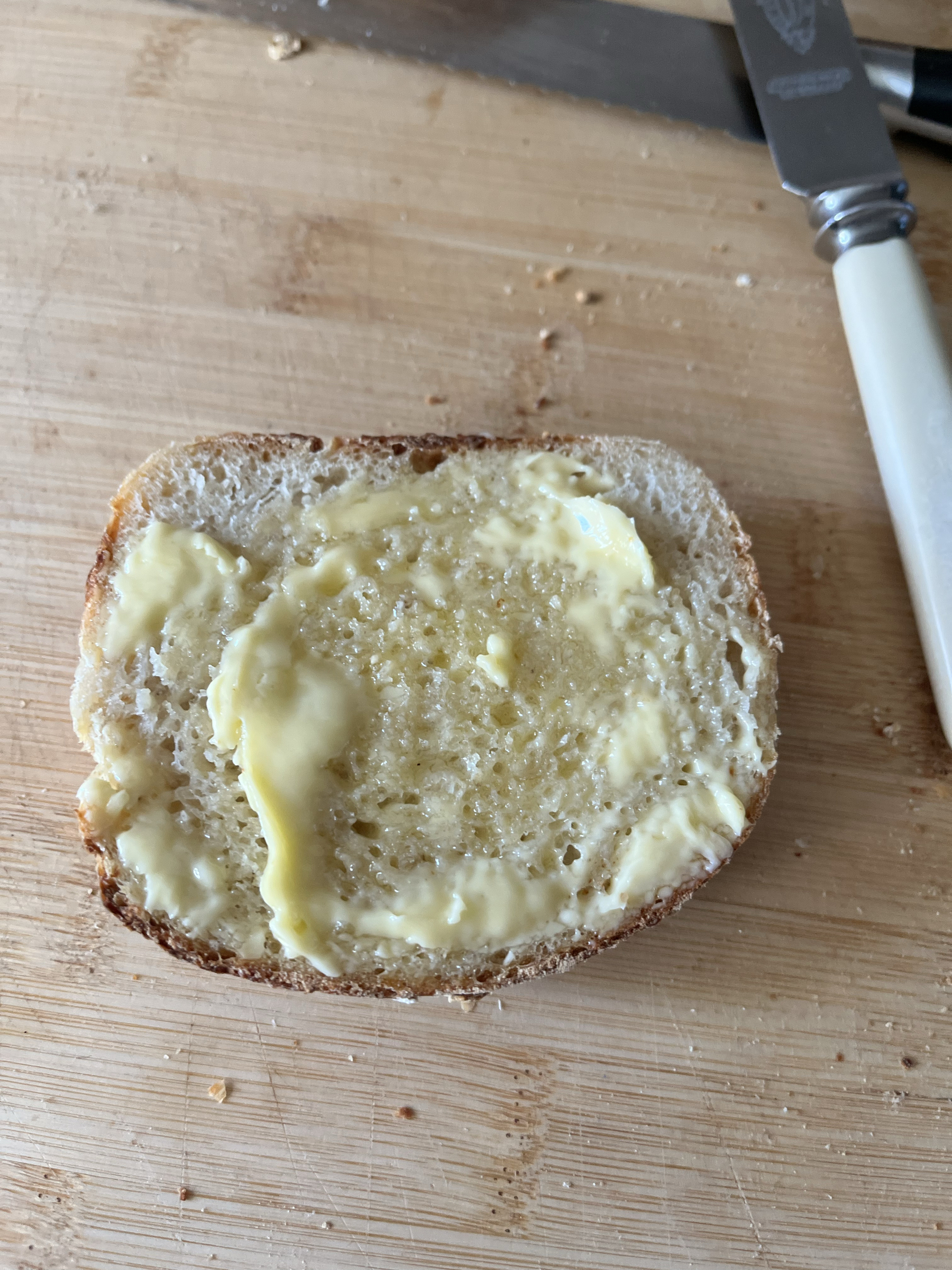
Collect of purity
Almighty God, unto whom all hearts be open, all desires known, and from whom no secrets are hid; Cleanse the thoughts of our hearts by the inspiration of thy Holy Spirit, that we may perfectly love thee, and worthily magnify thy holy Name; through Christ our Lord.